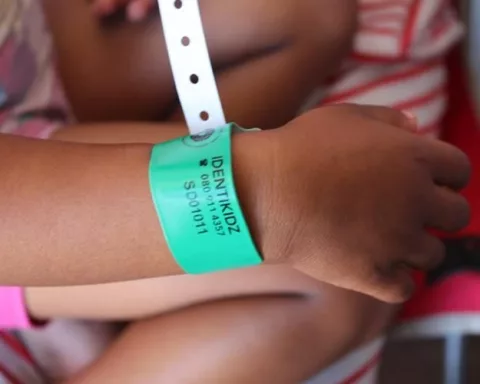A daycare centre in Cape Town, Bizi Babies Play Stimulation Centre, has come under scrutiny after a 16-month-old girl suffered a partial amputation of her thumb in April. The Western Cape Education Department recommended enhanced supervision and staff-to-child ratios following an investigation into the incident. The event highlights the importance of trust and transparency between childcare institutions and parents, as well as the role of regulatory bodies in ensuring adherence to standards.
What happened at Bizi Babies Play Stimulation Centre in Cape Town?
In April, a 16-month-old girl suffered a partial amputation of her thumb at Bizi Babies daycare centre in Cape Town. The daycare centre has since come under scrutiny, with the Western Cape Education Department recommending enhanced supervision and staff-to-child ratios. The incident highlights the importance of trust and transparency between childcare institutions and parents, as well as the role of regulatory bodies in ensuring adherence to standards.
Tucked away in the thriving hub of Somerset West, Cape Town, South Africa, is Bizi Babies Play Stimulation Centre, a nursery that prides itself on its sophisticated and tranquil ambiance. The centre is a sanctuary for babies and toddlers up to two years old, providing a space for them to feel safe, cared for, and mentally stimulated. Despite this serene veneer, the institution has been recently rocked by a distressing incident that has ushered in a whirlwind of emotions and unanswered queries.
A Shattering Phone Call and the Ensuing Desperation
It was near the middle of April when a phone call sent shockwaves through a couple’s world. Their 16-month-old daughter had suffered an injury at Bizi Babies, a daycare facility that they entrusted with their little one’s safety, paying a hefty monthly sum of R5,000 for her protection. The infant’s injury was severe – a partial amputation of her thumb, the result of an unexplained incident that left the daycare staff bewildered.
The event left the child’s father, who has chosen to remain anonymous to safeguard his daughter’s identity, in a state of utter despair and desperation. The parents’ decision to pick Bizi Babies was based on its affluent environment and their investment in the safety and well-being of their child. The mere recount of the incident by the father instills a bone-chilling sense of confusion and chaos.
The father’s confrontation with the severity of the injury, described by a doctor as a result of substantial force, was met with denial from the daycare centre owner. The lack of concrete answers and the increasing emotional turmoil led the family to pursue legal action against the centre’s insurer to cover the substantial medical bills.
Investigation and Recommendations by the Western Cape Education Department
Following the heartbreaking incident, the Western Cape Education Department (WCED) sprang into action. After receiving the complaint, a team of experienced officials was promptly dispatched to scrutinize the circumstances surrounding the incident. The team conducted individual interviews with the daycare centre’s owner, Lindsay Phillips, and three practitioners. They scrupulously inspected personnel files, communication records, procedures, policies, enrolment forms, and incident records.
The investigation exposed some areas of concern. The WCED’s primary suggestion was for the centre to enhance their supervision services, particularly the staff-to-child ratios. Ruth Leukes, the Western Cape Government Early Childhood Development Director, emphasized that all partial care facilities, registered or otherwise, are obliged to follow the staff-to-child ratio as set by the norms and standards of the Children’s Act.
In response to the recommendations, Bizi Babies has reportedly taken measures to institute the suggested alterations, particularly relating to visibility and supervision. Despite the severity of the incident, the daycare centre insists it was an accident and reiterates their passion and dedication to their profession of caring for children.
The Incident’s Aftermath and the Importance of Trust and Transparency
In the months following the incident, the little girl, now 20 months old, has shown impressive recovery. Her parents have enrolled her in a new daycare, hoping for a safer environment for their daughter.
This unfortunate event underscores the critical role of trust and transparency between institutions given the responsibility of caring for children and their parents. It unravels a complicated mix of emotions, from parents desperate for answers to the collective responsibility of daycare centres to guarantee an absolutely safe and caring environment. It further illuminates the role of regulatory bodies like the WCED in overseeing these institutions and ensuring they adhere to the norms and standards of childcare.
What was the cause of the injury suffered by the 16-month-old girl at Bizi Babies Play Stimulation Centre?
The cause of the injury suffered by the 16-month-old girl at Bizi Babies Play Stimulation Centre in Cape Town that led to a partial amputation of her thumb remains unexplained.
What action did the Western Cape Education Department take in response to the incident?
The Western Cape Education Department (WCED) dispatched a team to investigate the circumstances surrounding the incident after receiving a complaint. The team conducted interviews, inspected personnel files, communication records, procedures, policies, enrolment forms, and incident records. Following the investigation, the WCED recommended enhanced supervision and staff-to-child ratios at the daycare centre.
What recommendations were made by the Western Cape Education Department?
The primary recommendation made by the Western Cape Education Department was for Bizi Babies Play Stimulation Centre to enhance its supervision services, particularly the staff-to-child ratios. All partial care facilities, registered or otherwise, are obliged to follow the staff-to-child ratio as set by the norms and standards of the Children’s Act.
What measures has Bizi Babies Play Stimulation Centre taken in response to the recommendations?
Bizi Babies Play Stimulation Centre has reportedly taken measures to institute the suggested alterations, particularly relating to visibility and supervision, in response to the Western Cape Education Department’s recommendations.
How important is trust and transparency between childcare institutions and parents?
Trust and transparency between childcare institutions and parents are critical, as this event underscores. Parents entrust the safety and well-being of their children to these institutions, and it is imperative that they feel confident in the care their children receive. Childcare institutions have a collective responsibility to guarantee a safe and caring environment, and regulatory bodies like the Western Cape Education Department play a vital role in overseeing these institutions and ensuring they adhere to the norms and standards of childcare.
What legal action did the little girl’s family pursue?
The little girl’s family pursued legal action against the centre’s insurer to cover the substantial medical bills resulting from the injury.












